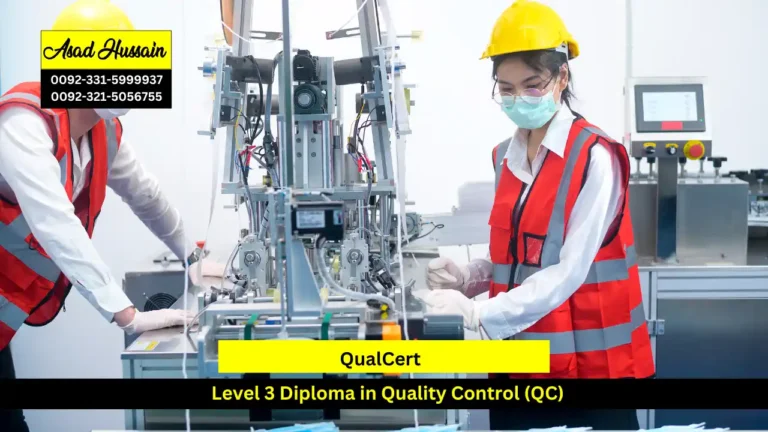In the realm of mechanical engineering, quality control (QC) plays a pivotal role in ensuring the reliability, safety, and efficiency of mechanical systems and components. From the initial design phase to the final production, meticulous quality control processes are essential to meet industry standards, customer expectations, and regulatory requirements. This blog post delves into the importance of quality control in mechanical engineering, the methodologies employed, and the benefits it brings to the industry.
Quality control in mechanical engineering is a cornerstone of ensuring excellence and reliability in the industry. By implementing rigorous inspection, testing, and process control methodologies, mechanical engineers can produce high-quality components and systems that meet stringent safety and performance standards. The benefits of quality control extend beyond product quality, encompassing cost efficiency, compliance, and customer satisfaction. As technology and industry standards continue to evolve, the importance of quality control in mechanical engineering will only grow, driving innovation and excellence in the field.
Program Highlights
Mandatory Units
- Fundamentals of Quality Control
- Statistical Methods for Quality Control
- Metrology and Measurement Systems
- Quality Inspection and Testing
- Quality Management Systems (QMS)
- Reliability Engineering
- Design of Experiments (DOE)
- Root Cause Analysis and Corrective Action
- Advanced Quality Control Techniques
- Quality Control in Supply Chain Management
- Quality Control in Product Development
- Prospective students are typically required to have a minimum educational qualification equivalent to a high school diploma or its international equivalent. Some institutions may require specific coursework in mathematics, physics, or engineering as part of the high school curriculum.
- While not always mandatory, a background in mechanical engineering or related fields such as manufacturing engineering, industrial engineering, or materials science can be advantageous. Familiarity with engineering principles, materials, and manufacturing processes provides a solid foundation for understanding quality control concepts and methodologies.
- Strong mathematical and scientific skills are essential for success in quality control in mechanical engineering. Candidates should have a solid understanding of algebra, geometry, calculus, and physics, as these subjects form the basis of many quality control techniques and calculations.
- Proficiency in the language of instruction, usually English, is often required, as course materials, lectures, and assessments are typically conducted in English. Candidates may be required to provide proof of language proficiency through standardized tests such as the TOEFL or IELTS, especially if English is not their native language.
- Candidates should possess strong analytical and problem-solving skills to effectively identify, analyze, and address quality-related issues in mechanical engineering processes and products. The ability to think critically, troubleshoot problems, and propose solutions is highly valued in the field of quality control.
Fundamentals of Quality Control
- Understand the basic principles and importance of quality control in mechanical engineering.
- Identify the various stages of the quality control process.
- Recognize the historical development and evolution of quality control practices.
- Apply quality control terminology and concepts in practical scenarios.
Statistical Methods for Quality Control
- Utilize statistical tools and techniques to analyze quality data.
- Interpret control charts and understand their role in process monitoring.
- Apply statistical process control (SPC) methods to maintain quality standards.
- Perform capability analysis to assess the performance of manufacturing processes.
Metrology and Measurement Systems
- Understand the principles of metrology and its significance in quality control.
- Select appropriate measurement tools and techniques for different applications.
- Calibrate and maintain measurement systems to ensure accuracy and precision.
- Analyze measurement data to make informed quality control decisions.
Quality Inspection and Testing
- Design and implement effective inspection plans for mechanical components.
- Conduct various non-destructive testing (NDT) methods to evaluate material integrity.
- Interpret inspection and testing results to identify defects and non-conformities.
- Develop corrective actions based on inspection and testing findings.
Quality Management Systems (QMS)
- Understand the components and requirements of quality management systems (QMS).
- Implement QMS frameworks such as ISO 9001 in mechanical engineering contexts.
- Conduct internal audits to assess compliance with QMS standards.
- Develop and manage documentation for QMS implementation and maintenance.
Reliability Engineering
- Define reliability engineering concepts and their relevance to quality control.
- Apply reliability analysis techniques to predict product lifespan and performance.
- Implement reliability improvement strategies in mechanical design and production.
- Conduct failure mode and effects analysis (FMEA) to enhance product reliability.
Design of Experiments (DOE)
- Understand the principles and purpose of the design of experiments (DOE).
- Plan and conduct experiments to optimize product design and manufacturing processes.
- Analyze experimental data to draw valid conclusions and improve quality.
- Utilize DOE methods to identify critical factors affecting product performance.
Root Cause Analysis and Corrective Action
- Perform root cause analysis (RCA) to identify underlying causes of quality issues.
- Develop and implement corrective actions to prevent recurrence of defects.
- Use RCA tools such as the 5 Whys and fishbone diagrams effectively.
- Monitor and evaluate the effectiveness of corrective actions.
Advanced Quality Control Techniques
- Explore advanced quality control techniques such as Six Sigma and Lean Manufacturing.
- Apply these techniques to improve process efficiency and reduce defects.
- Integrate
This course is designed for mechanical engineers, quality control professionals, and manufacturing specialists who are dedicated to ensuring the highest standards of quality and reliability in their work. It is also ideal for recent engineering graduates seeking to enhance their expertise in quality control methodologies, as well as mid-career professionals looking to update their skills with the latest advancements in the field. Additionally, this course benefits quality managers, process engineers, and anyone involved in product development, supply chain management, and reliability engineering, equipping them with the knowledge and tools necessary to implement effective quality control practices in various mechanical engineering contexts.







